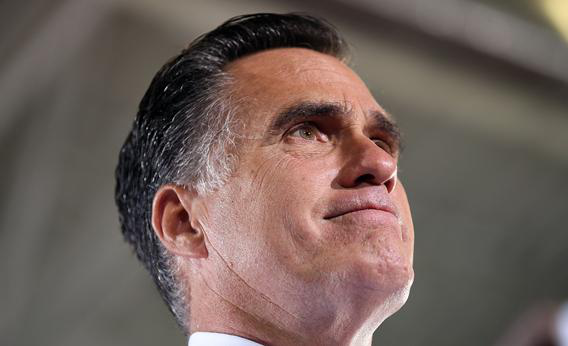Read the rest of Slate’s coverage on the Supreme Court upholding the Affordable Care Act.
The Supreme Court’s decision to let the core elements of the Patient Protection and Affordable Care Act stand kicks the fate of the Obama administration’s signature initiative where it properly belongs—into the domain of politics—where a Romney administration would still have ample opportunity to dismantle the main elements of the law.
One thing President Romney probably couldn’t do, however, would be the politically expedient step of simply repealing the legally controversial and politically unpopular fine levied on people who decline to purchase health insurance. Both Romney (who embraced a mandate as governor of Massachusetts) and Obama (who opportunistically opposed a mandate when running against Hillary Clinton) understand the basic issue here. Requiring insurance companies to accept all customers and charge the same price regardless of their state of health (“guaranteed issue” and “community rating” in wonk-speak) are popular but unworkable ideas. If people can buy insurance only after they get sick, then there isn’t enough money coming into the system to cover the bills of the people who are sick.
That’s why even the Obama administration told the Supreme Court that if they struck down the mandate, the guaranteed issue and community rating provisions should go as well. The court did have the option of being devious, and simply kicking the dilemma of what to do with a mandateless market back to the White House. But a future Romney administration would have to internalize the consequences of stripping the mandate and thus would be unlikely to try to isolate it.
This is where Democrats may come to rue the day that they decided to delay implementation of the main parts of their signature initiative all the way until 2014. The upside of delaying implementation was that it superficially made the cost of the bill inside the 10-year scoring window used by the Congressional Budget Office look smaller than it otherwise would. The downside is that they made it much simpler for Republicans to take some unpopular actions in 2013 than might have been the case. Once the insurance exchanges created by the law are in place, repealing the guaranteed issue and community rating provisions would mean throwing millions of sick people off their insurance plans. That would create a large and concentrated constituency of people who’d be informed by their doctors and their insurers about possible legislative changes.
And it turns out that the provisions a Romney administration would need to repeal to gut the law are wildly popular. According to a Reuters poll earlier this week, 78 percent of self-identified Republicans favor “banning insurance companies from denying coverage for pre-existing conditions” and 86 percent of them support “banning insurance companies from canceling policies because a person becomes ill.”
In other words, once the basic framework of the law is in place, it’ll be all but impossible to kill. That’s probably why no country that’s instituted a universal health insurance program has ever rolled it back—even strong conservatives like Margaret Thatcher in the United Kingdom or the current right-wing government in Canada leave existing programs in place.
The problem for Democrats is that if Romney takes office in 2013, none of this stuff will have actually happened yet. Repealing the law in its abstract form is a bit politically risky for Republicans but not nearly as risky as it will become in the future. Already in 2011, House Republicans were thrilled to vote for a “Repeal the Job-Killing Health Care Law Act,” even though it was obvious that the president was never going to sign it. If in January 2013 Republicans control all three branches of government, there’s no reason to think they’ll grow more timid. In a statement immediately following the Supreme Court’s decision, Romney promised to “act to repeal Obamacare” on his “first day if elected president of the United States” and if Congress puts a bill to that effect on his desk, he’ll do it.
Still, though Republicans seem likely to win control of the Senate in any scenario where Romney becomes president, it’s exceedingly unlikely that they’d score the 60 votes needed to overcome a filibuster. Technically speaking, since repealing the bill would increase the budget deficit, it should be ineligible for the budget reconciliation process that Democrats used to pass the bill in the first place with only 59 votes. In reality, this is unlikely to make a difference to a determined GOP. Back in 2001 and 2003, Republicans were able to find gimmicks to pass giant tax cuts under reconciliation orders, and in this case conservatives sincerely believe that the CBO is mistaken and repeal would reduce the deficit.
Scrapping the law, in other words, should be a pretty easy lift for Republicans—if they win the election. But if they lose, as provisions of the law roll out during Obama’s second term, they’re likely to find that it’s very difficult to take popular benefits away from people who already have them. By declining to do Republican politicians’ work for them, in other words, John Roberts just made 2012 a very consequential election.
